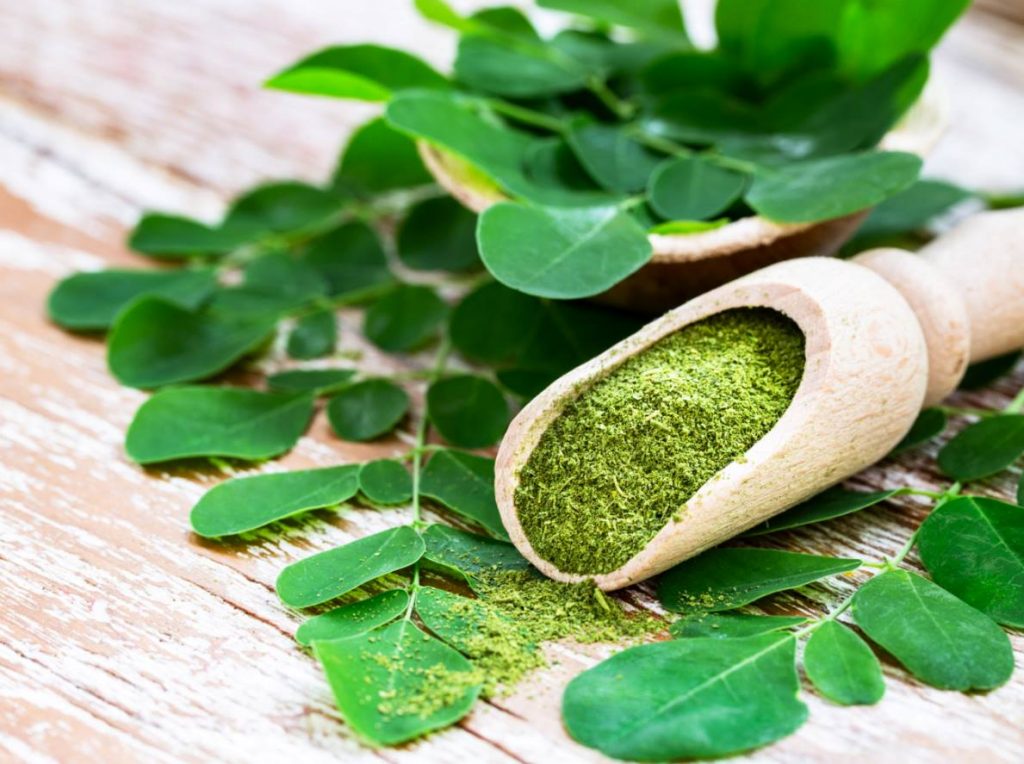
Using natural plant-based products with fewer adverse effects has become increasingly popular over time. Moringa is a tree grown mostly in Africa and India, famous for its health-related benefits, such as anti-oxidant, anti-inflammatory, anti-nociceptive, anti-atherosclerotic, and wound healing properties. Due to its hypoglycemic properties, it is also used to maintain blood glucose.
Moringa is commonly known as a "mother's best friend tree" because almost every part of this tree, i.e., roots, leaves, stems, fruits, flowers, and even bark, are rich in macro- and micronutrients. These nutrients and bioactive substances can help regularize body functions and prevent many diseases.
Some of the common benefits of Moringa are discussed below.
The reduced ability of the stomach to properly digest food or increased re-absorption of water from the stools often leads to constipation. Moringa contains soluble and insoluble fibers, which can help prevent constipation.
Soluble fibers form a jelly-like mixture, which slows digestion and keeps you fuller for a long period. Moreover, insoluble fibers make stool easily pass through the digestive tract, preventing constipation.
An increased acidity in the stomach is the primary cause of peptic ulcers. Moringa can reduce stomach acidity by almost 85%, preventing peptic ulcers and gastritis.
Moringa contains anti-inflammatory compounds containing phytonutrients, antioxidants, and antibacterial compounds. These compounds help fight inflammation by removing free radicals, reducing oxidative stress, and ultimately inflammation.
Moringa contains a large amount of antioxidants, like flavonoids and polyphenols, which help prevent premature wrinkles and skin aging. Thus, using Moringa can make the skin look smoother and younger.
Moringa can help fight against disorders like multiple sclerosis (MS), Alzheimer’s disease, and neuropathic pain, as it contains antioxidants and anti-inflammatory nutrients.
Moreover, researchers have tested Moringa extract on mice, and the results have revealed its anti-anxiolytic properties that can help treat anxiety.
Moringa can help prevent cardiovascular disorders as it has antioxidants that can remove free radicals and anti-inflammatory nutrients that reduce inflammation, preventing tissue death of cardiovascular muscles.
In addition to these, Moringa contains Quercetin, an antioxidant that prevents inflammation and lipid formation.
Moringa leaf powder can decrease after-meal sugar levels in people with diabetes. It occurs because Moringa has a special substance called Chlorogenic acid, which stabilizes blood sugar levels.
Oil extract from Moringa seed can increase collagen production around body wounds, irrespective of diabetic status. Moreover, Moringa has a high amount of oleic acid that can increase the wound healing mass. Similarly, each 100g of Moringa contains about 35 g of proteins essential for early wound healing.
Moringa extract can help dilate blood vessels, reducing blood pressure. A study found that male obese humans with high blood pressure had decreased systolic and diastolic blood pressure after one week of using Moringa leaves.
Airway swelling, mild asthma, and bronchial constrictions can be managed by Moringa extract. A clinical study revealed marked improvement in asthma severity after using seed kernels of Moringa oleifera for three weeks.
The liver is the main organ of our body that detoxifies certain toxins and harmful materials in the body. However, high cholesterol and exposure to some toxins can damage the liver, resulting in liver diseases.
Moringa can help prevent liver diseases as it contains many antioxidants like vitamin E that can prevent and sometimes reverse early liver damage.
Laboratory investigations have revealed that moringa extracts may prevent minerals from accumulating and creating kidney stones. However, further studies are needed to establish the beneficial effects of Moringa regarding kidney stones.
After discussing the many health-related benefits of Moringa, let’s look at the three simple ways to consume it daily.
One of the simplest ways to consume Moringa is to “blend it with the water.” Although either hot or cold water can be used, hot water can help blend the Moringa leaves better. However, Moringa tastes a bit bitter, so adding honey can give it a sweet taste.
Moringa leaves can be added to smoothies with pineapples, apple juice, beets, or whatever you like the most. Its powdered form can added directly to smoothies, or its leaves can be blended with other smoothie ingredients. You can also add Avocado to the Moringa to increase the benefits of the smoothie.
Moringa comes from India and Africa and can provide many health-related benefits. Its roots, leaves, fruit, flower, stem, and bark can help prevent and treat many medical illnesses. It acts as an antioxidant and anti-inflammatory product, preventing many diseases, including stomach ulcers, arthritis, depression, anxiety, and fatty liver disease. Furthermore, it also regulates blood sugar levels and decreases lipid accumulation, preventing heart problems.
However, further research is being carried out to see its nutrient content and its ability to treat disease.
Ben’s Natural Health is the world’s first high-quality, all-natural, scientifically proven clinical supplement company. Their motto is to combine holistic healing with modern science.
Ben has brought together a team of naturopaths, nutritionists, and medical researchers to help him create real, side-effect-free solutions to serious metabolic health conditions.